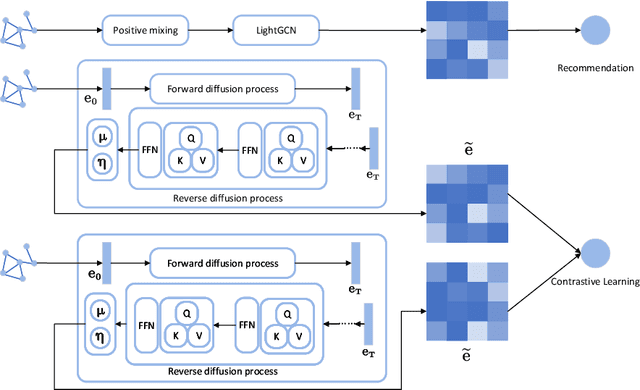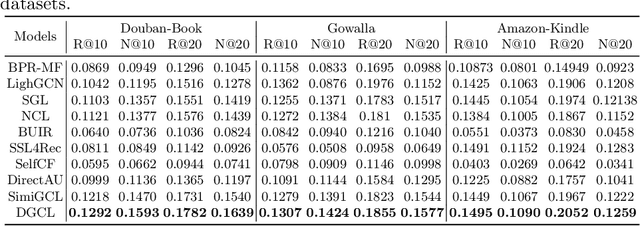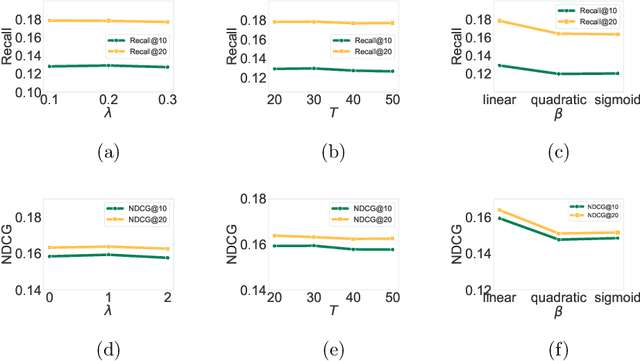Diffusion-augmented Graph Contrastive Learning for Collaborative Filter
Paper and Code
Mar 20, 2025



Graph-based collaborative filtering has been established as a prominent approach in recommendation systems, leveraging the inherent graph topology of user-item interactions to model high-order connectivity patterns and enhance recommendation performance. Recent advances in Graph Contrastive Learning (GCL) have demonstrated promising potential to alleviate data sparsity issues by improving representation learning through contrastive view generation and mutual information maximization. However, existing approaches lack effective data augmentation strategies. Structural augmentation risks distorting fundamental graph topology, while feature-level perturbation techniques predominantly employ uniform noise scales that fail to account for node-specific characteristics. To solve these challenges, we propose Diffusion-augmented Contrastive Learning (DGCL), an innovative framework that integrates diffusion models with contrastive learning for enhanced collaborative filtering. Our approach employs a diffusion process that learns node-specific Gaussian distributions of representations, thereby generating semantically consistent yet diversified contrastive views through reverse diffusion sampling. DGCL facilitates adaptive data augmentation based on reconstructed representations, considering both semantic coherence and node-specific features. In addition, it explores unrepresented regions of the latent sparse feature space, thereby enriching the diversity of contrastive views. Extensive experimental results demonstrate the effectiveness of DGCL on three public datasets.
 Add to Chrome
Add to Chrome Add to Firefox
Add to Firefox Add to Edge
Add to Edge